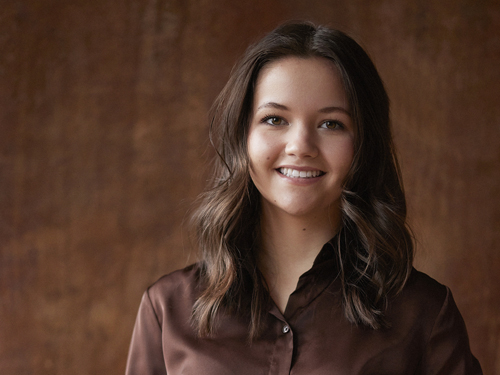Which is more trustworthy: a computer-generated voice assistant or a human voice? Iowa State marketing graduate Sydney Pantini conducted research to find out.
Which is more trustworthy: a computer-generated voice assistant (VA) or a human voice? It’s a timely question, with nearly 50 percent of Americans forecast to be using VAs like Alexa and Siri™ by 2025, and an increasing number of businesses using VAs to power their customer support departments.
Yet when then-Iowa State student Sydney Pantini got curious about how people respond to VAs, she couldn’t find any information. So her mentor, Sekar Raju, the Gary and Margaret Pint Faculty Fellow and Chair of Marketing, suggested she create a research protocol to find out.
Sydney took up Raju’s challenge with relish.
Trust and verify
Sydney designed her study to elicit the answer. She recruited 200 participants who interacted with both VAs and humans asking opinion-based questions like “What’s your favorite color?” and fact-based questions like “What’s the most popular color?”
After listening to the answers, participants indicated how they felt about the trustworthiness of the voices by ranking them on scales of friendliness and competence.
“At first, I couldn’t imagine quantifying and measuring something as subjective as perception. It’s different for different people,” Sydney says. “But using a scale that shows a range worked. I now understand better how marketing research can be done.”

—Sydney Pantini
Checkmate: tech
Sydney was surprised to find VAs outperformed humans in several categories.
“We expected the data to show Alexa less warm and competent from a perception perspective, because humans are used to humans. So that was surprising.”
Marketers base decisions on consumer perception, so whether VAs help or harm information delivery is critical.
“It’s a good first step. I’d like to see more research on it. I’m proud of my role. Iowa State encourages students to ask the big questions, then provides the resources to answer them.”
The human touch
However, that research won’t be powered by Sydney, who graduated in May 2023.
“Thanks to my experience, I’ve realized what I love most is working with people. The best part of this work was collaborating with Sekar. It bolstered my confidence overall, and now I’m looking into grad school.”



